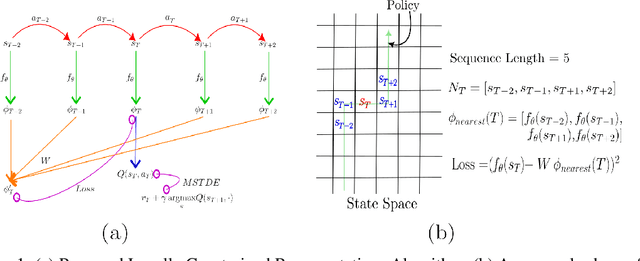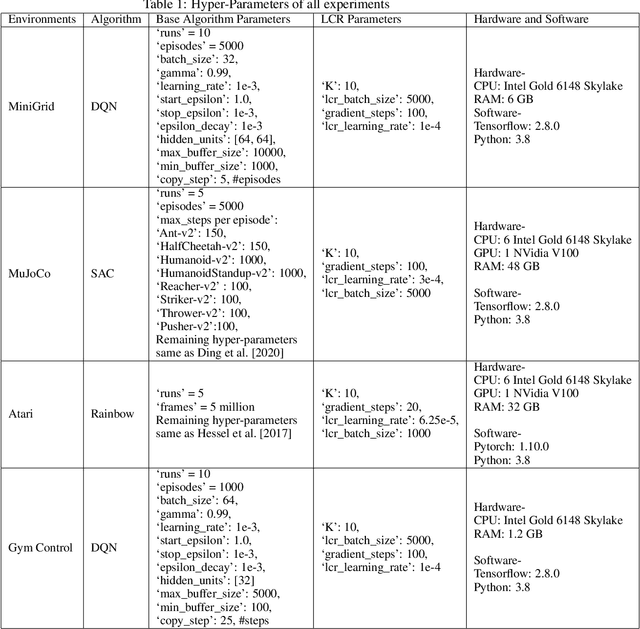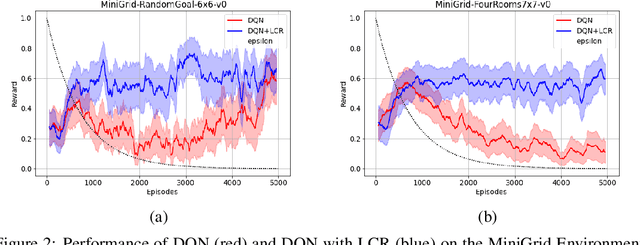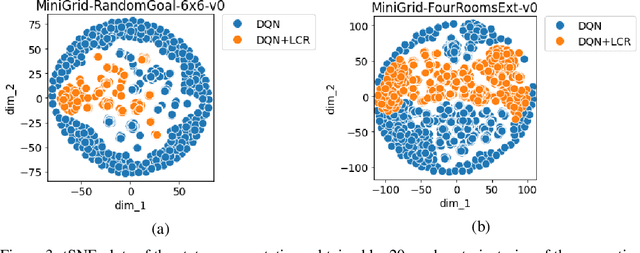Locally Constrained Representations in Reinforcement Learning
Paper and Code
Sep 20, 2022



The success of Reinforcement Learning (RL) heavily relies on the ability to learn robust representations from the observations of the environment. In most cases, the representations learned purely by the reinforcement learning loss can differ vastly across states depending on how the value functions change. However, the representations learned need not be very specific to the task at hand. Relying only on the RL objective may yield representations that vary greatly across successive time steps. In addition, since the RL loss has a changing target, the representations learned would depend on how good the current values/policies are. Thus, disentangling the representations from the main task would allow them to focus more on capturing transition dynamics which can improve generalization. To this end, we propose locally constrained representations, where an auxiliary loss forces the state representations to be predictable by the representations of the neighbouring states. This encourages the representations to be driven not only by the value/policy learning but also self-supervised learning, which constrains the representations from changing too rapidly. We evaluate the proposed method on several known benchmarks and observe strong performance. Especially in continuous control tasks, our experiments show a significant advantage over a strong baseline.
 Add to Chrome
Add to Chrome Add to Firefox
Add to Firefox Add to Edge
Add to Edge